Watch and Share the Video –
By Glynn Wilson –
MOBILE, Ala. — Joe Womack of Africatown is not happy with the administration of his old school, the Mobile County Training School, from where he graduated in 1968. He is not happy with the administration of his home town of Mobile. And he’s afraid for the 250 kids who attend the middle school now that the Plains pipeline company out of Texas has pushed forward with digging an oil pipeline right through the school yard.
On the day construction began, he and other members of the historic African-American community where the last known shipment of slaves landed in the United States, were staging a protest.
“The next thing we knew they were plowing right through the field,” he said in a video interview this past weekend right after Mardi Gras ended and Lent began. “We don’t like it. We don’t appreciate it.”
“We’re disappointed with the city,” he said, the politicians who are supposed to protect the people and the public interest. “No one’s told us anything.”
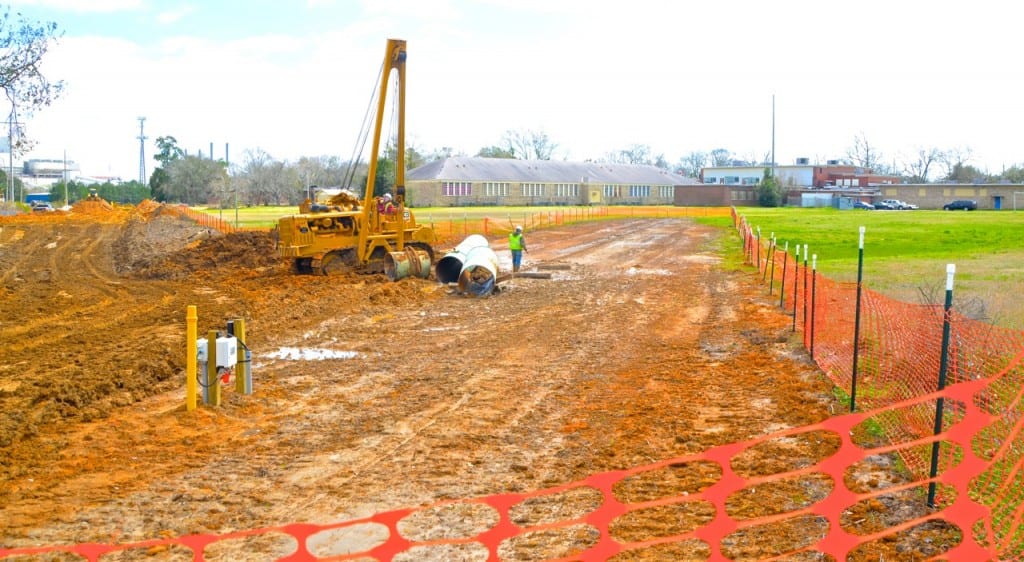
Plains pipeline company destroyed a school yard to build an oil pipeline and concerned citizens want it fixed: Glynn Wilson
At the same time, an ad hoc committee formed by the Mobile City Council has been meeting to make recommendations on whether a planned oil storage tank city right across the street from the school on an old International Paper brownfield site should be approved or prohibited. The site is in an area called Hog Bayou where people used to hunt, fish and get baptized in nearby Three Mile Creek.
Now Womack, who worked for Shell Chemical in Louisiana back when a chemical plant explosion and fire killed school kids not far away in Norco, is worried about the safety of the kids in the school if the city goes ahead with allowing a rapid expansion of oil and petrochemical storage and transportation hubs along the riverfront.
“I can just visualize the same thing happening here if there is an explosion in those big tanks right across the street,” Womack said.
While residents in Africatown see all the industrial development in their community as another atrocity in a long line of racist, classist, environmental injustices thrust upon poor communities for generations, the chamber of commerce-minded city administration is trying to capitalize on the growing exportation of oil and gas through its port, as well as the importation of Canadian tar sands crude making its way to the Gulf Coast by rail. At the same time, there is an ongoing effort to talk the talk of trying to encourage more tourism to spur the local economy.
Womack and other critics, like David Underhill of the Mobile Bay Sierra Club, say it is ludicrous to try and have it both ways, and they don’t seem to be able to get any answers from public officials or company management about whether the Africatown pipeline or the pipeline under construction through the watershed of the city’s only source of fresh drinking water will carry standard oil or chemically diluted or heated tar sands crude.
There are no federal, state or local regulations that limit what a company can pump through a pipeline once it’s built, so there is much suspicion that the tar sands crude could end up in the storage tanks and be pumped through the pipelines right under a school yard and a creek that feeds Big Creek Lake.
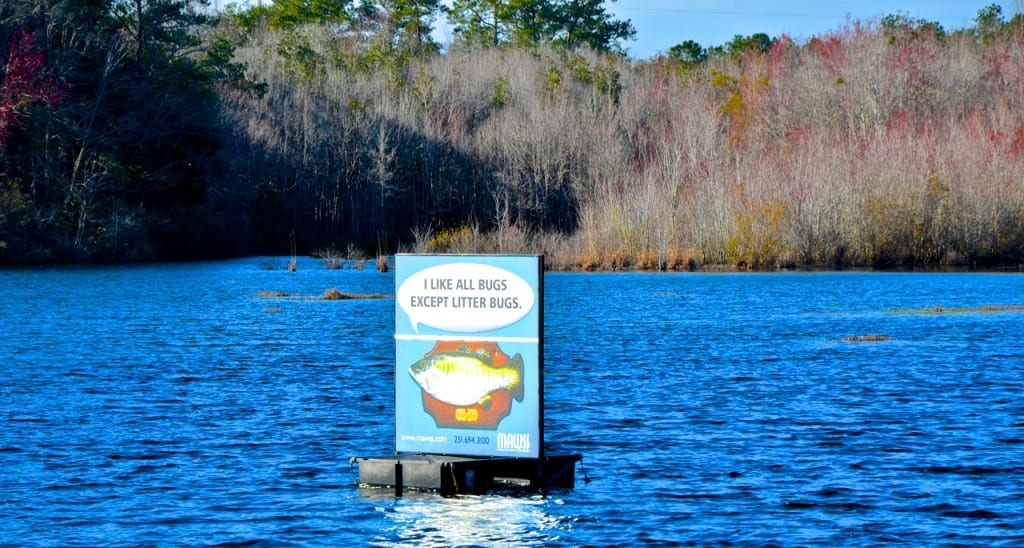
The Mobile water board wants to keep liter bugs out of Big Creek Lake, but settled with Plains pipeline company to allow an oil pipeline to run through its only source of fresh drinking water: Glynn Wilson
“These new pipes they are putting up would be the same type of pipes if they wanted to run tar sands,” Womack said. “So they would have, if they wanted to, the opportunity to change over from regular crude to tar sands.”
Residents and concerned citizens recently had a meeting with school Superintendent Martha Peek to voice their concerns and ask questions, but she said her hands were tied because the new corporation was somehow allowed to operate under an easement agreement dating back to the 1950s, which the company can renew every 30 years for less than $400.
“A lot of laws have changed since 1951,” Womack said. “I think if someone wanted to challenge that they could.”
The problem is, it is too late to challenge it. The school yard is already torn up, and by the time this story is published, the pipeline will mostly be in the ground.
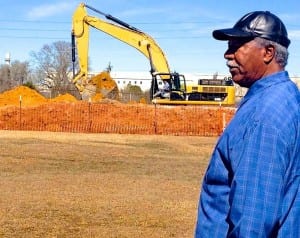
Cleon Jones, left fielder of 1969 World Series champion New York Mets, watches pipeline trench being dug across the field where he learned to play baseball
Womack said Plains has offered to spend $30,000 to $50,000 to help the school rebuild the athletic fields to “historical condition,” but it is not clear whether that means its former glory or to just before they tore it up to dig and install the new pipes. Back in the day, when Cleon Jones played there and later went on to play left field for the 1969 World Series champion New York “Miracle Mets,” along with Hall of Famer Billy Williams, there was a baseball field, a football field, a running track and locker rooms.
“We would like to see it restored back to original historic conditions,” Womack said. “We don’t know if it’s going to take $30,000 or $100,000 because we are just beginning to plan. We didn’t ask them to come in to our house and tear it up. They came here and tore it up. We want them to fix it back.”
The day before we visited the school, we shot video of the city committee meeting in Mobile’s government building looking out over all the industrial activity in the port city. One of the members of the committee is Thomas Bates, who worked for the Evonik chemical company, formerly known as Degussa. In trying to prevent environmentalists on the committee from placing restrictions on the proposal to allow companies to build oil storage tank farms in Africatown and other places along the riverfront, he indicated that tank farms would be the only “responsible economic development” that could ever happen in the area, since he didn’t think any company would ever try to build a “high rise condominium” there.
But he has obviously not bothered to talk to anyone in Africatown, certainly not Joe Womack, who said there is a plan to develop a museum, a theme park and an entertainment district.
Watch and Share the Video
In 2012, the community was placed on the National Registry of Historic Places. Soon after that, citizens formed a nonprofit organization called the Africatown Community Development Corporation. The mission is to put together a vision and a plan to restore the area back to its historic condition, before all the industrial development polluted the community and made it unsafe.
The plan is to entice more residents to come into the area, which will become impossible if it becomes home to massive tar sands tank farms and more oil pipelines. Since International Paper pulled out due to tougher environmental regulations and when cheap timber became available in Siberia when the Cold War ended with Russia in 1989, Womack said Three Mile Creek has come back and people actually fish there now.
“The idea is to bring it in tune to Mobile’s vision for tourism,” Womack said. “It’s within two miles of downtown Mobile.”
They want to replicate the slave ship Clotilda, which brought those last slaves to America from Africa, and build a museum and entertainment district around it.
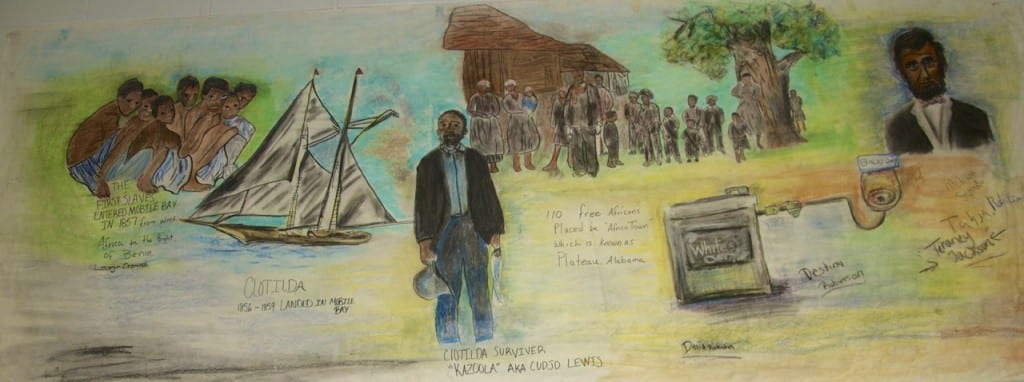
A mural featuring the slave ship Clotilda hangs on the wall in the Mobile County Training School: Glynn Wilson
“We don’t have to put up storage tanks,” Womack said. “That’s a menacing threat to the community. No one here wants to see that.”
Anyone who would say you have to build storage tank farms because no one is going to do anything else is “someone with a small vision, in my mind,” Womack said. “I would gladly like to sit down at the table and talk to that person to try to see if I could get them to expand their vision.”
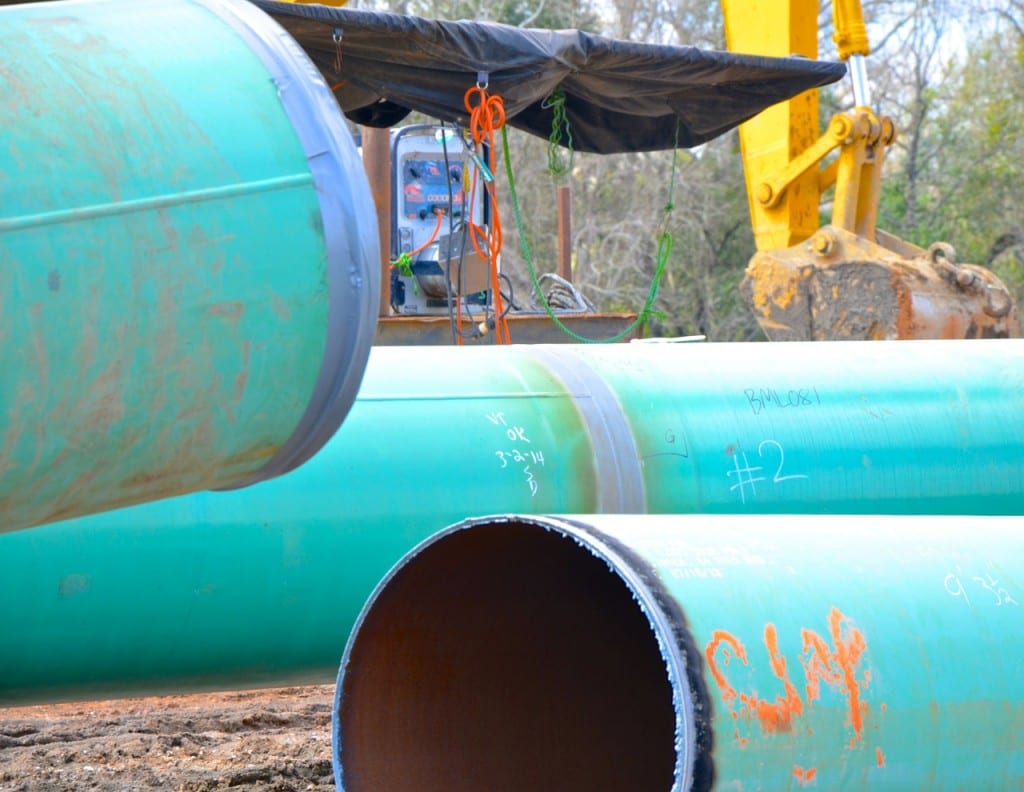
Sections of pipe showing the welds made problematic by electromagnetism. The pipe has to be degaussed before it will take a weld: Glynn Wilson
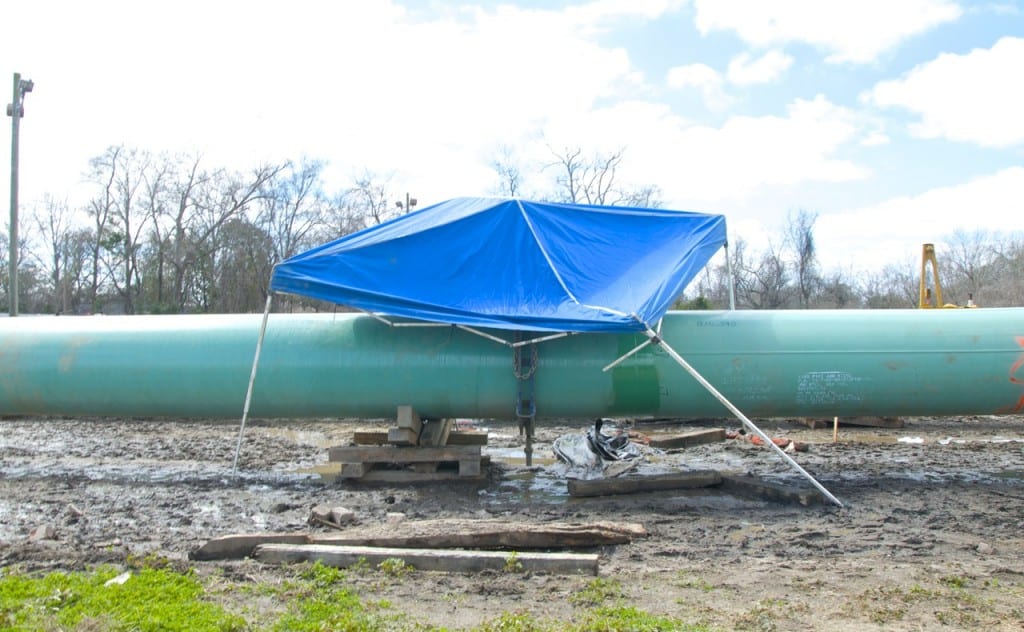
Sections of pipe showing the welds made problematic by electromagnetism. The pipe has to be degaussed before it will take a weld: Glynn Wilson


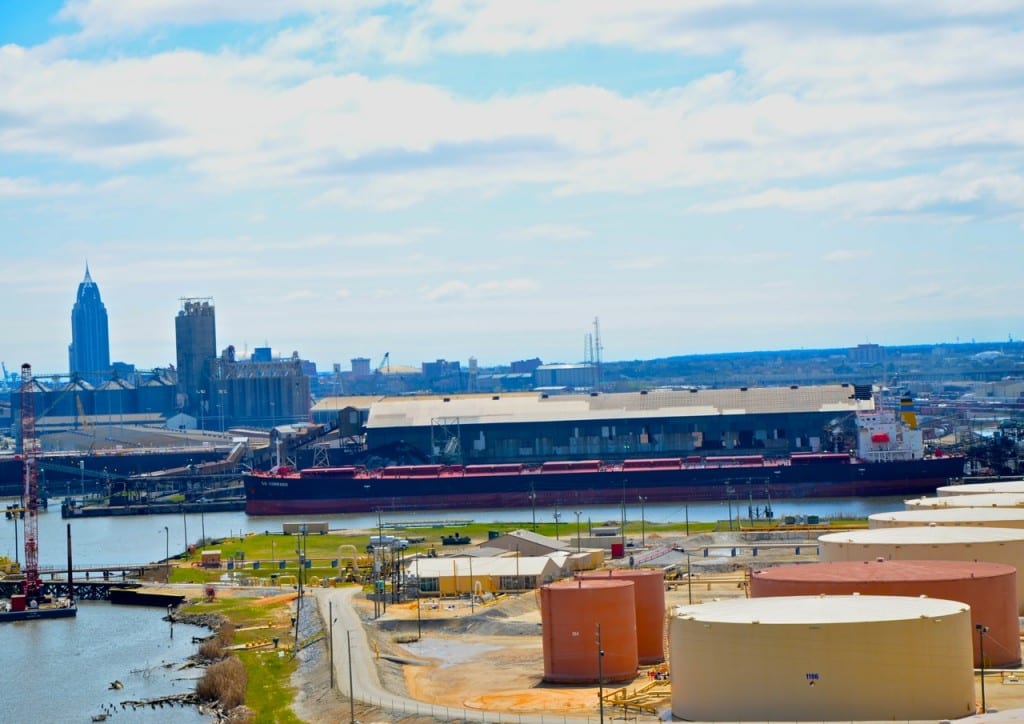
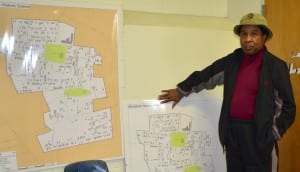
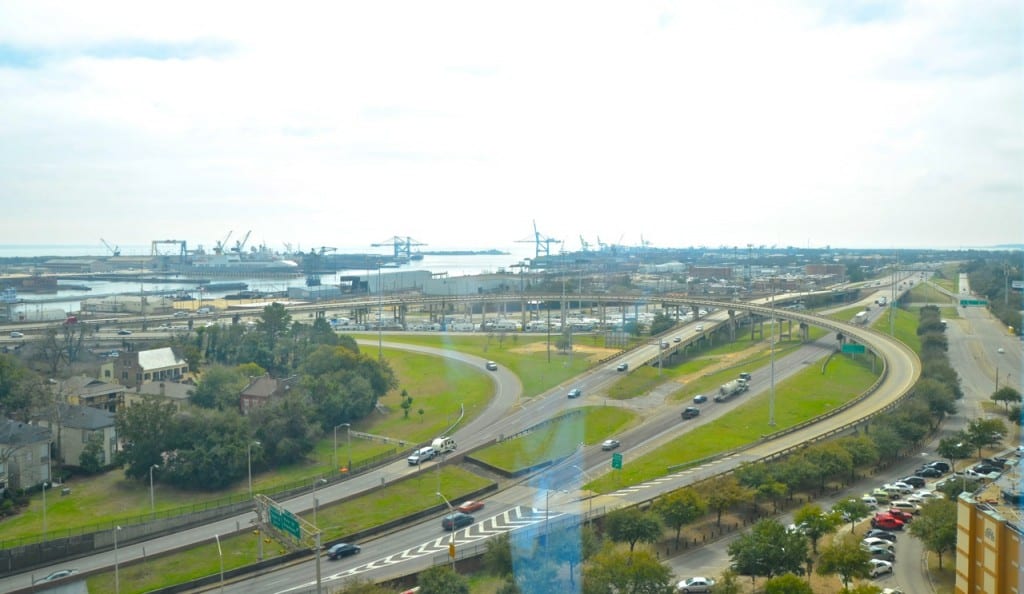
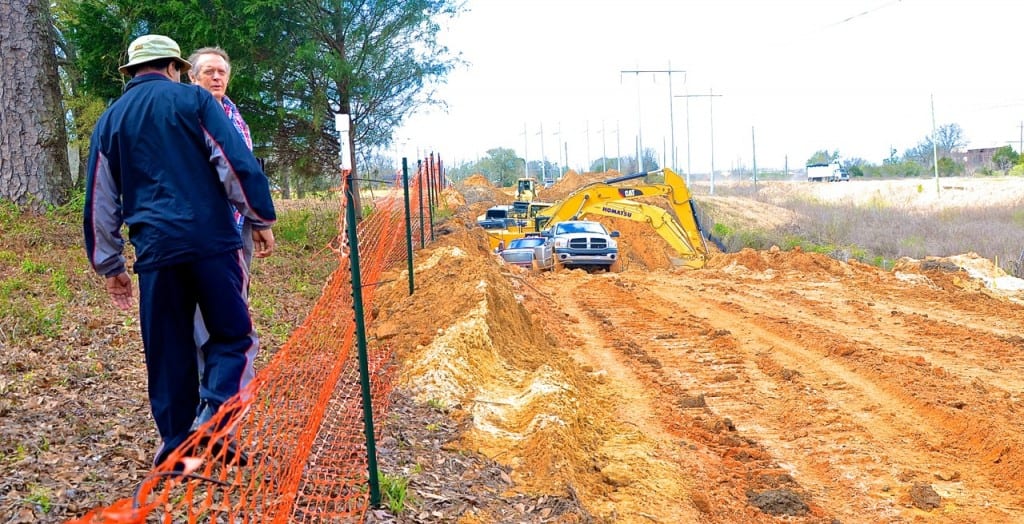
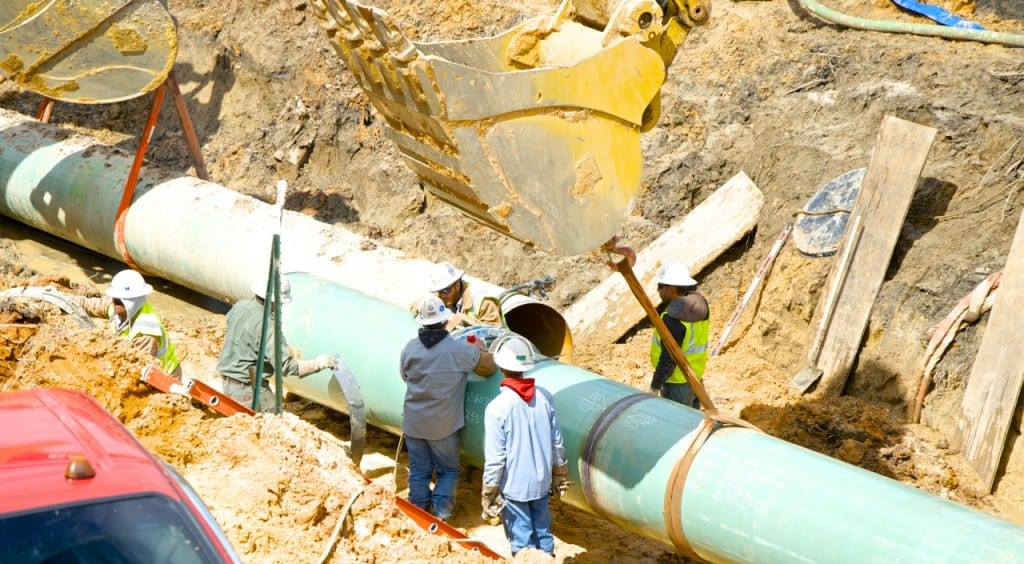
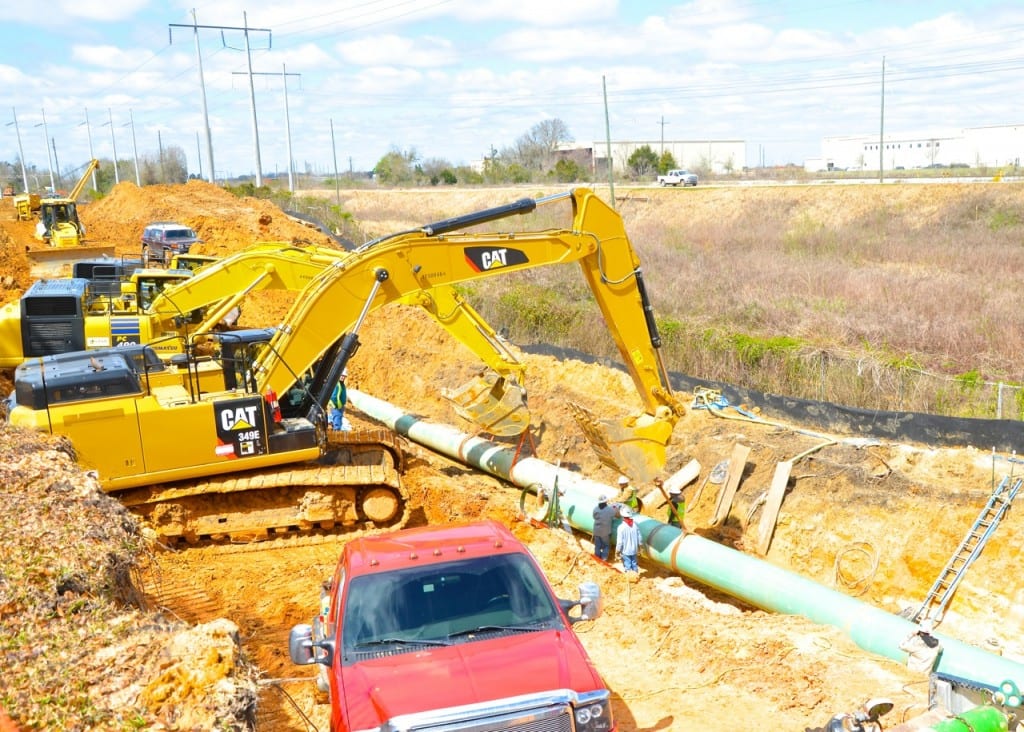
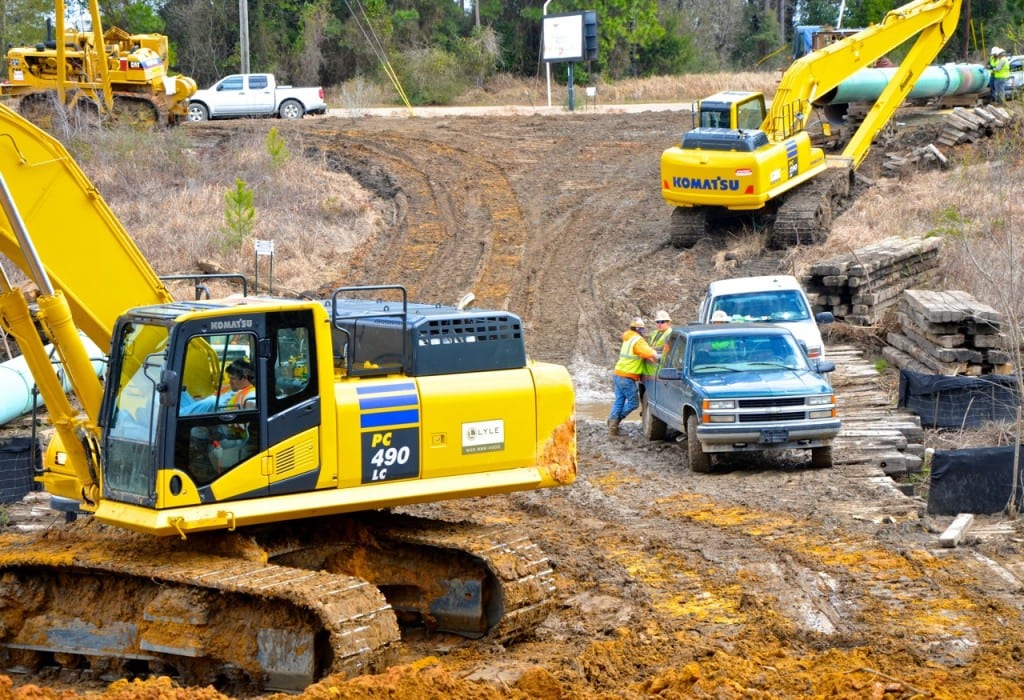
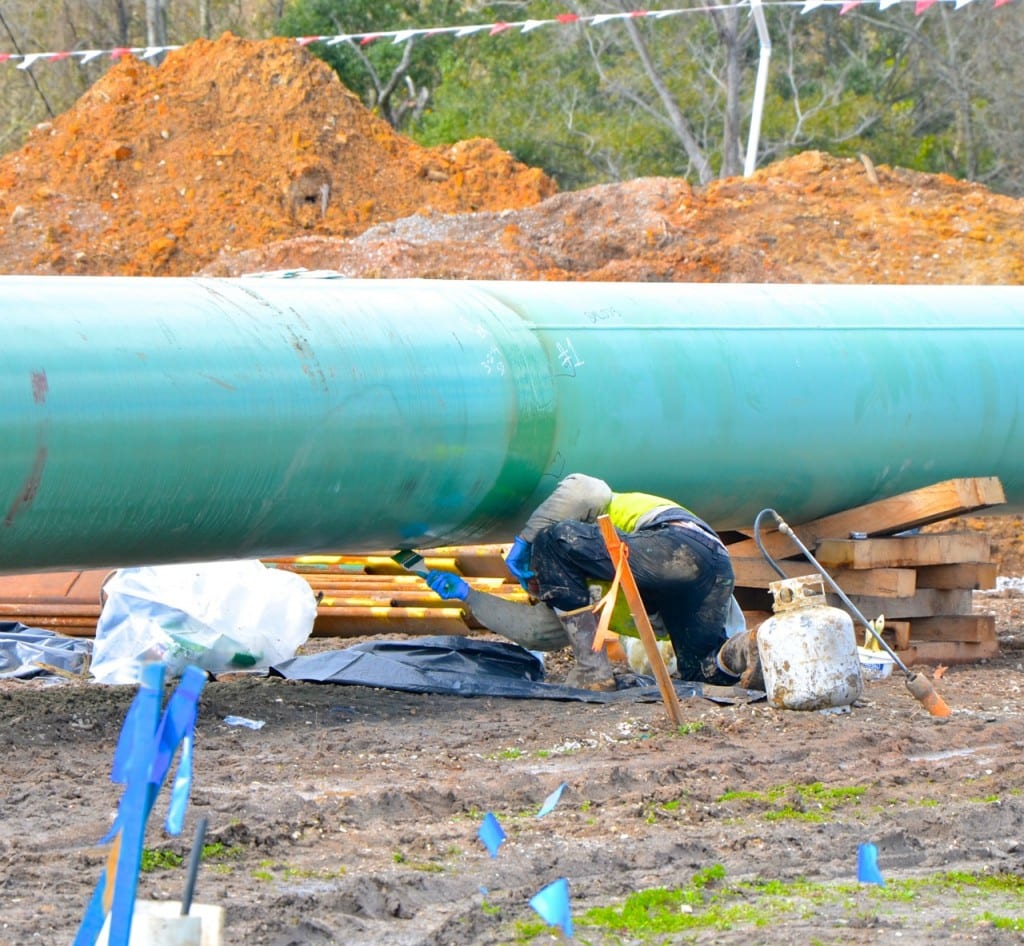
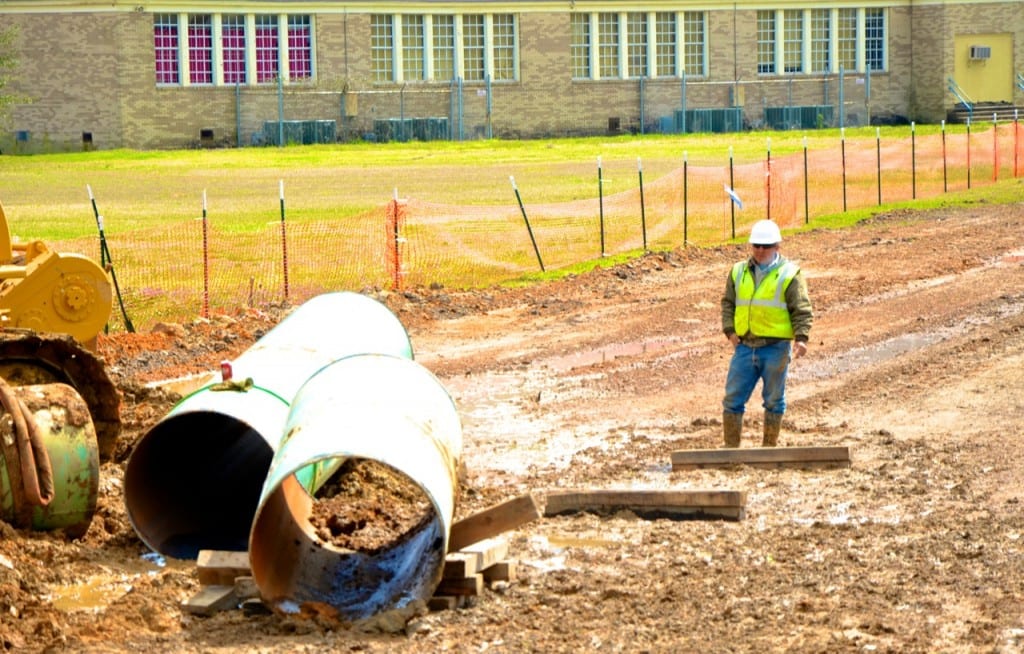
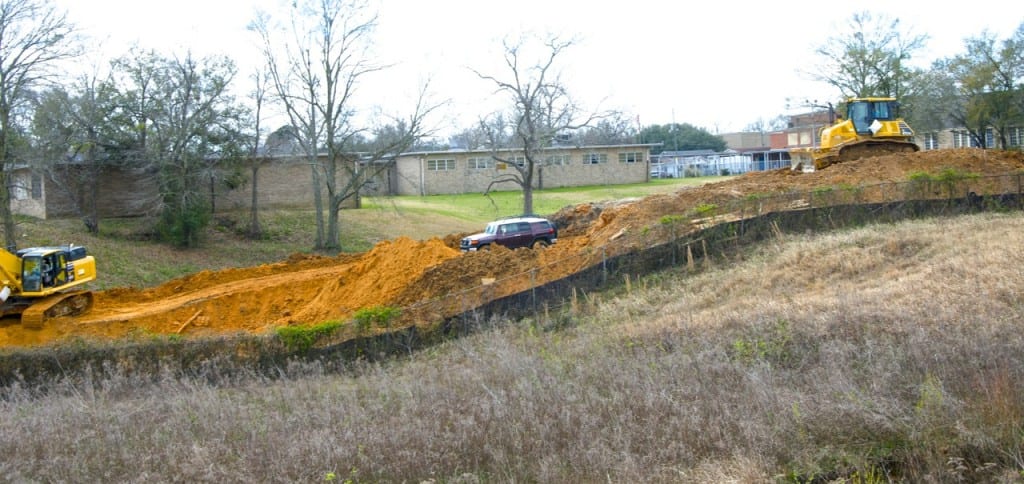
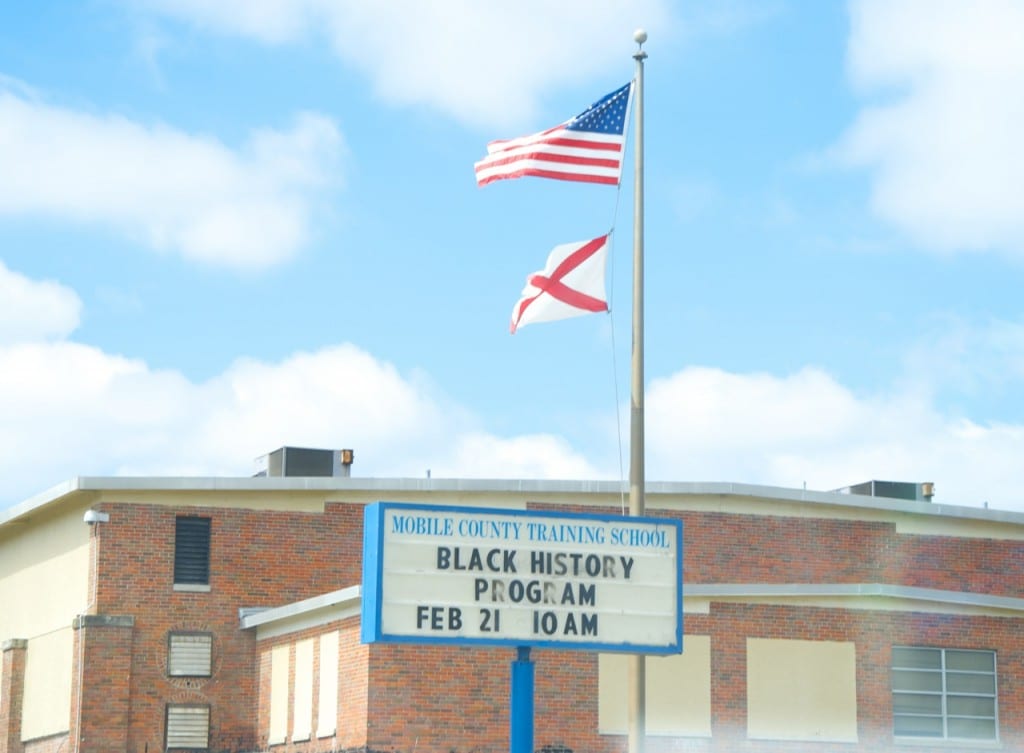
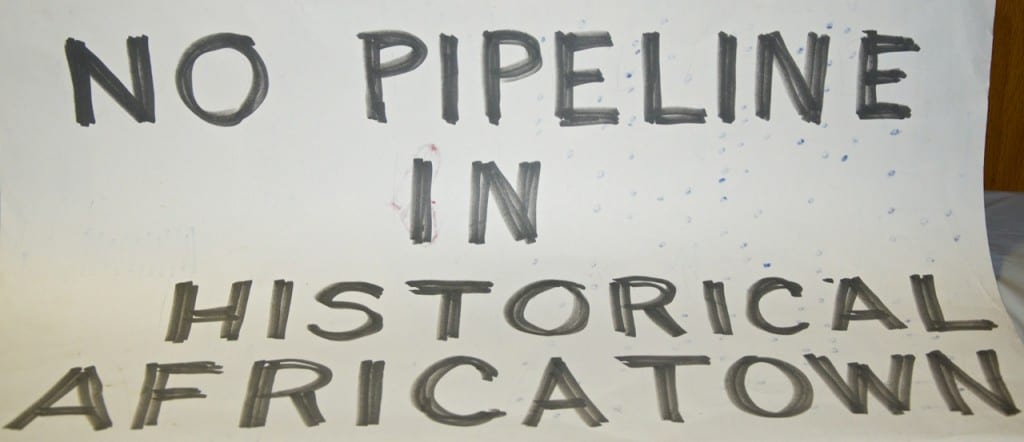
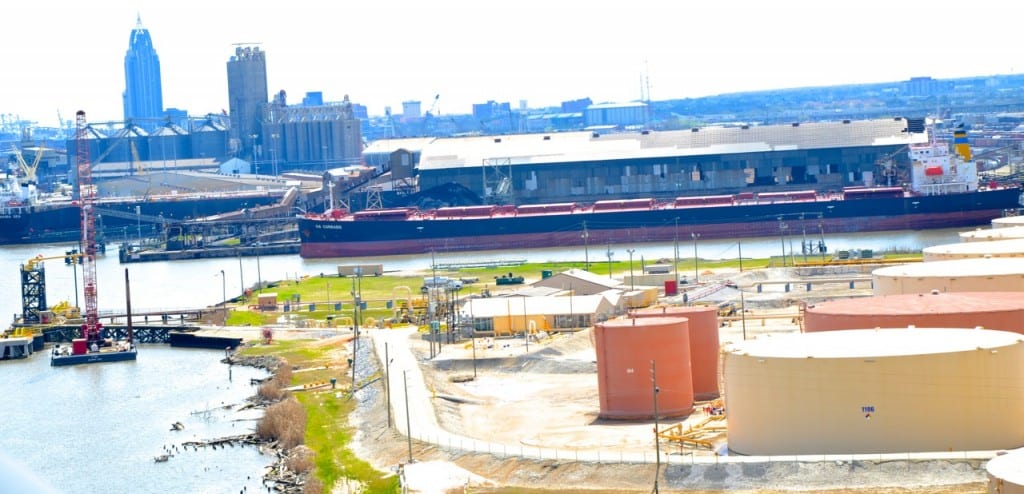












Shame on the elected officials who have allowed this pipeline to go through the school yard and historic area!!